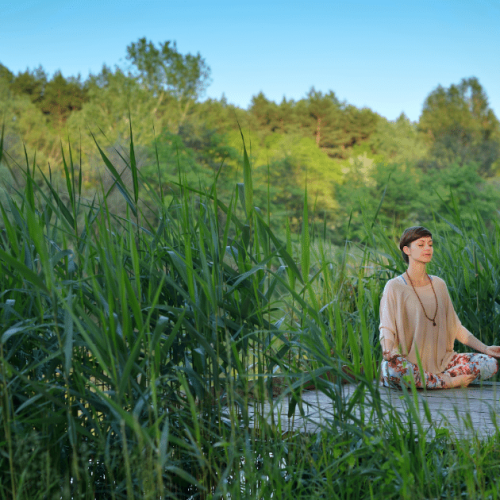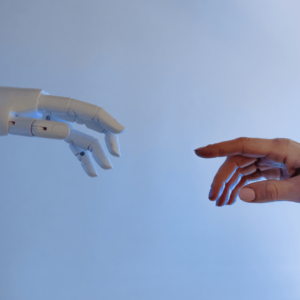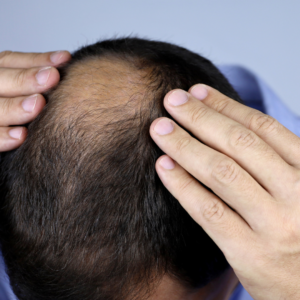In our fast-paced world, where distractions are constant, the practice of mindfulness has become more important than ever. In this post, we will explore various aspects of mindfulness, answering key questions about its nature and benefits. We’ll even share a simple but effective trick to help you start your mindfulness journey. Have you ever tried to be fully present in the moment or actively pursued mindfulness? If not, this post is the perfect starting point for you. Let’s delve into the art of being present and discover how mindfulness can transform our daily lives.
What Mindfulness means
Let’s clear the simple things first mindfulness is a practice that centers on being fully aware and present in the moment. This can be in the form of observing our thoughts, feelings, and sensations as they are, without judgment or distraction. I know it sounds easy but its actually a very hard to not dwell on the past or worrying about the future, but living in the here and now.
Furthermore, mindfulness involves a conscious effort to focus on our current experience, fostering a deeper connection with ourselves and our surroundings, which can be achieved by exercising meditation, mindful breathing techniques or mindful observation. We will get to it later !
Most important, mindfulness, a tool of immense power, offers clarity and calm when mastered. Instead of succumbing to impulsive reactions, one learns to respond with poised reflection. Embrace this practice, and you’ll navigate stress with remarkable ease, facing life’s challenges with a serene and unshakable inner peace.
What Mindfulness is Not
As most things in life mindfulness falls subject of common misconceptions, that needs to be clarified. Mindfulness is not just emptying your mind and the attempt to dump away all of your current ideas and problems. As well as disconnecting from reality. It’s the opposite. Facing what swarms in your mind and becoming fully aware of the present experience and the feelings that occur. The key is not to react but observe.
It’s not a religious practice. Though rooted in Buddhism, its core principles echo in various faiths and cultures. For instance, in Christianity, the practice of contemplative prayer incorporates mindfulness, especially in its emphasis on being present, in this case, with God. This universality of mindfulness means that it’s accessible to everyone, irrespective of their cultural or religious background.
Mindfulness does not require a specific setting or time of the day. If you want to practice your mindfulness or use the tool, you practice it at anytime, anywhere on any day !
Are Mindfulness and Meditation the Same Thing ?
To be honest, if I had received a penny every time I’ve been asked this question, I wouldn’t need to write this article. But here we are, and you’re probably as eager for an answer as I am to share it. Here’s the quick fix you’ve been looking for – a straightforward solution.
Mindfulness and meditation are Not the same thing. They are related but not identical concepts. First, meditation is a practice, a specific thing you do. You sit quietly while breathing you actively focus to find relaxation or peace in your mind.
Mindfulness, on the other hand, is a way of being aware and present in everything you do. So there is no need to quietly sit down and close your eyes. It’s more about how you life your day and paying full attention to whatever you do. It can just be actively listening to a conversation or noticing the smell of rain in the morning.
When will Mindfulness Occur ?
This one is no secret and you already know the answer, even if you thing right now.: ”Oh wow, how should I know, that’s why I’m reading this amazing article”. The answer to the question is you ! You are the only person that knows, when it occurs. It could be right now, being mindful reading this article.
Whether you’re eating, walking, reading, breathing or just sitting. It’s your choice to be mindful and let it occur. The prerequisite is that you want it and consciously focus on the present experience, observing your thoughts, feelings, and surroundings without judgment. It’s an ongoing practice that will occur anytime you want it to !
When Mindfulness Doesn’t Work
There could be multiple factors involved if mindfulness doesn’t work for you. It’s not a one-size fits all solution, like some people are not the type for playing a specific sport as basketball. You could just not be the type of mindfulness. The important takeaway is that it’s okay if it doesn’t work for you. There are plenty of different strategies and solutions for effective stress management and mental well-being.
Anyway, if you want to explore a different method to well-being you can check out one of our older blog posts here. But if you really want to try harder and exercise and improve your mindfulness further, we have a surprise at the end of the article for you !
Why Mindfulness is a Superpower
We arrived at the best and most meaningful part of the article, I think. What are the benefits of mindfulness and why it could act as your new superpower. In order to reap the benefits and significantly enhance your quality of life, you need to practice mindfulness regularly and consciously. Yet, what is it that truly makes mindfulness a superpower?
Have you ever found yourself in a stressful situation, reacting impulsively, only to later think, ‘Oh no, I wish I had kept my cool and responded more calmly’? This is a common experience, but imagine a different scenario – one where you navigate these tense moments with ease and clarity. This is the power of mindfulness at work. By sharpening your focus and enhancing decision-making abilities, mindfulness empowers you to master your impulses, turning potentially disadvantageous reactions into thoughtful, controlled responses. It’s not just about avoiding regret it’s about cultivating a sense of inner calm and clarity that guides you, even in the most challenging situations.
Furthermore, If you ever felt that life is speeding is speeding away from you ? Day after day is passing, you feel like your there but in the same moment your not, like a life on autopilot. Mindfulness has the power to make everyday experience more joyful and engaging. Disabling autopilot and take back control by giving even the smallest task your fullest attention. Engage and be present at every moment and activity in your daily life. This remarkable ability to positively impact your well-being and everyday life is what makes mindfulness akin to a superpower in our modern, impulse controlled world.
Where Mindfulness Falls Short
You could have guessed it. Everything has it’s limitations even mindfulness. One important aspect is it’s limitation on sever mental issues. Yes, mindfulness helps to manage stress and improve your well-being but you need to cut the line, when it comes to disorders as depression, PTSD or schizophrenia. Mindfulness is not a substitute for professional treatment.
Furthermore, for some individuals there are difficulties in practice, especially if your attention span and focus are more underdeveloped. If you mostly face environments that have constant distractions, getting started can be very tough. It’s important to emphasize that mindfulness is not the Panacea, it cannot cure everything, not recognizing it’s limitations can lead to disappointment.
Another, there is potential for misuse. As mentioned you are going to observe your emotions during mindfulness. At that point you are giving the chance to distance yourself from your emotions and feelings, without tackling them or resolving and labelled it as mindfulness. Don’t avoid the roots of your feelings nor fundamental psychological issues. Be mindful of being mindful !
How Mindfulness empowers us !
After considering the potential misuse let’s get back to exploring how mindfulness empowers us ! Mindfulness empowers us by enhancing our ability to regulate emotions, leading to reduced stress and improved mental health. Having a healthy mind helps you to tackle different areas of life better.
It deepens our understanding of our thoughts and feelings, paving the way for better decision-making and problem-solving skills. Moreover, mindfulness expands our capacity for empathy and compassion, which strengthens our relationships. It fosters a heightened sense of awareness and presence, enriching our life experiences. Ultimately, mindfulness makes us more resilient and adaptable, equipping us to gracefully navigate life’s challenges. The more we harness the power of mindfulness, the more empowered we become in the tapestry of our lives.
Conclusion
In wrapping up this exploration of mindfulness, it’s clear that this practice is more than just a trend – it’s a journey towards understanding and empowering ourselves. Mindfulness is a powerful tool, one that can enhance not just our mental health but also our everyday experiences, relationships, and decision-making abilities.
As we’ve seen, while mindfulness has its limitations and is not a one-size-fits-all solution, its benefits in cultivating a resilient and adaptable mindset are undeniable. It’s about finding balance, being present, and embracing life’s experiences with a renewed sense of awareness.
We encourage you to continue exploring this topic and other wellness-focused content on our blog. For those of you looking to complement your mindfulness practice with physical well-being, don’t forget to check out our shop for tailored nutrition and workout plans designed to help you achieve your health and fitness goals , here.
And for your daily dose of health inspiration and more content on mindfulness, be sure to follow us on Instagram. There, we regularly share tips, insights, and encouragement to support you on your journey to a healthier, more mindful life, here.
Remember, the path to personal well-being is a personal one, and we’re here to guide and support you every step of the way. So, keep exploring, stay mindful, and embrace the journey!

Sources
Mayo Clinic: https://www.mayoclinic.org/healthy-lifestyle/consumer-health/in-depth/mindfulness-exercises/art-20046356
Oxford Mindfulness Foundation: https://www.oxfordmindfulness.org/learn-mindfulness/resources/
National Health Service (NHS) – UK: https://www.nhs.uk/mental-health/self-help/tips-and-support/mindfulness/
The Free Mindfulness Projekt: https://www.freemindfulness.org/download





